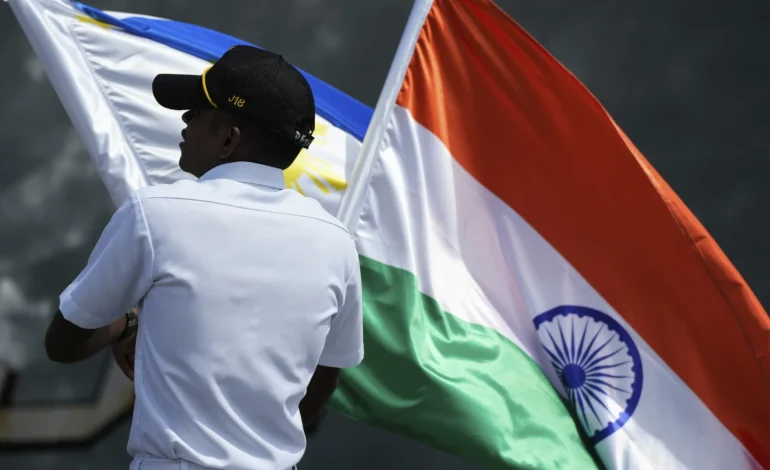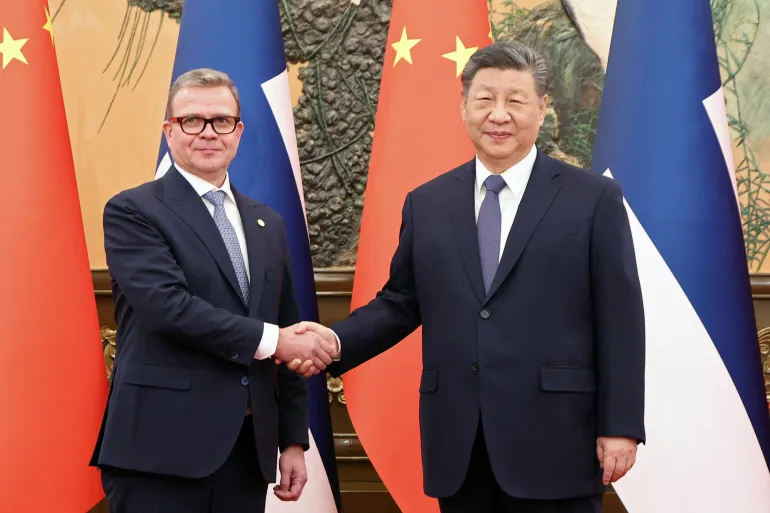India and Philippines Team Up for First-Ever Naval Drills in South China Sea, Ruffling China’s Feathers

For the first time ever, the Indian and Philippine navies joined forces over the weekend for joint naval exercises in the hotly contested South China Sea—making waves not just in the water, but also in Beijing.
The two-day drills kicked off Sunday and wrapped up smoothly, according to Gen. Romeo Brawner, chief of staff of the Armed Forces of the Philippines. He called the joint sail a success and said he’s hoping for more of these team-ups with India going forward.
“We didn’t have any serious incidents,” Brawner said Monday, “but yes, we were shadowed”—a not-so-subtle nod to China’s military presence.
According to the Philippine military, two Chinese navy vessels, including a guided-missile destroyer, were spotted lurking about 25 nautical miles from one of the participating Philippine ships.
While China didn’t name India directly, its Southern Theater Command released a statement warning that joint drills like this one “undermine regional peace and stability.” The message was clear: Beijing isn’t thrilled to see other countries getting involved in what it considers its turf.
China’s foreign ministry followed up with its usual line—that disputes in the region should be settled by the countries directly involved, without “third-party interference.”
The drills featured India’s guided-missile destroyer INS Delhi, tanker INS Shakti, and corvette INS Kiltan. On the Philippine side, the navy deployed frigates BRP Jose Rizal and BRP Miguel Malvar. The operation took place inside the Philippines’ exclusive economic zone, an area China also claims, despite a 2016 international tribunal ruling that invalidated those claims under international law.
The joint exercise lined up with Philippine President Ferdinand Marcos Jr.’s departure for a five-day state visit to India. Marcos is in New Delhi to deepen bilateral ties, especially in defense, trade, agriculture, and even pharmaceuticals.
But officials made it clear that this was more than a diplomatic gesture.
“This sends a powerful signal of solidarity and partnership between two vibrant democracies in the Indo-Pacific,” said Brawner, who hosted a reception aboard the Indian tanker Shakti before the drills began.
The Philippines has recently been ramping up “maritime cooperative activities” with other countries, including the US, Japan, Australia, and France, to push back on China’s increasingly aggressive claims in the South China Sea. These joint patrols aim to promote freedom of navigation in one of the world’s busiest shipping lanes—where an estimated $3 trillion worth of trade passes through every year.
While the drills themselves didn’t spark a confrontation, China’s shadowing behavior underscores how tense things remain in the region. With Beijing continuing to reject the 2016 ruling and doubling down on its expansive maritime claims, countries like the Philippines are doubling down, too—only with more friends by their side.
Brawner summed it up last week:
“If we want to avoid conflict, we need to strengthen deterrence. That means modernizing our forces and partnering with like-minded nations—like India.”
With input from Reuters and the Associated Press.









The latest news in your social feeds
Subscribe to our social media platforms to stay tuned